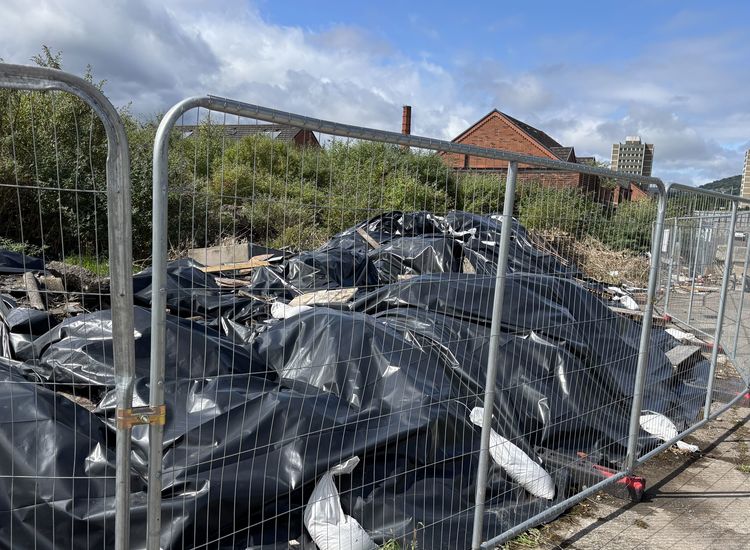This column was published in the Oct. 22, 2014, issue of the Irish Echo.
By Maura Mulligan
Recently I was invited to read at the Hudson Valley Irish Fest in Peekskill. One of two guest authors, I was honored to be in the line-up with Ray O’ Hanlon author of The South Lawn Plot and editor of this Newspaper. As I dragged my wheelie bag full of books up the hill from the train station to the festival grounds, I suddenly realized that a convent I once lived in stood on the other side of the train tracks.
Memories of zealous, young postulants in long black skirts, devout white-veiled novices, altar candles, celestial singing and burning incense shot through my brain as I walked past kilted pipers and popular bands like “Black 47” preparing to mount an outdoor stage.
In September 1962, I entered the convent of Mount Saint Francis, the entrance of which was now distracting me from this festival. I wanted to get into the spirit of the celebration and focus on fiddlers playing for hard-shoe step dancers and artists transforming children’s faces into butterflies, birds and cats. Most of all, I wanted to focus on my reading.
But as I waited my turn to read, my mind flew back to that chapel (just steps away) when I had knelt along with twenty-five other young women on the hard tiles facing the altar, where we bent forward in prostration as Brides of Christ. The knell of the death bell signaling death to the world had saddened members of the congregation causing sobs and moans to blend with the drone of the organ. My mother, living in Ireland was unable to attend the ceremony. Had she been there, I pictured her turning to the “mourners” and voicing firmly, “Well, for God’s sake, will ye pipe down. They won’t have a care in the world when they’re married to the Lord.” For young Catholic girls at that time, having a vocation to become a nun was highly regarded and treasured.
The excerpt I read at the festival was about my first job as a fourteen -year –old housemaid in what my mother called “a grand house.” But although that experience was about a place in my native County Mayo, the chapter from which the excerpt was taken began in that convent on the other side of the train tracks, the place where I was told, “you have an Irish accent. The children won’t understand you. Off you go to the kitchen.”
And so I was assigned to help the priest’s housekeeper.
A passing train caused me to pause my reading. While I waited for the reverberation to fade, I was sidetracked by flashbacks to a time when that same lonesome horn penetrated the chapel walls where, in a white wedding dress and veil, I walked down the aisle as the organist played Veni Creator Spiritus, while the train horn reminded me that I, and the other young women who joined the order with me, had left the world behind.
After my reading, I watched families enjoy a picnic as they listened to bands like ‘Black 47’ and ‘The Druids’ on an outdoor stage. I looked across the train tracks and saw the entrance to where I had shared meals in silence with the other young nuns in training.
I remembered the evening I became a novice. We were allowed conversation at supper instead of listening to spiritual reading from the works of Pierre Teilhard de Chardin and his likes. But as new novices, we were anxious about what would happen when the meal was over. We didn’t want to talk much that evening.
After supper, the workroom with its sewing machines and tables became a waiting room, and the bead room, where the large rosary beads that hung at our sides were strung together, was turned into a barbershop. Sister Mariella, our novitiate equivalent of a class clown tried to joke. “Let’s call this the beauty parlor,” she giggled. No one laughed this time. We sat at the long tables in silence, reading The Lives of The Saints while waiting our turns.
The nun assigned to rendering us bald, sighed loudly when she looked at my shoulder-length, auburn curls. I could tell she did not enjoy cutting young women’s hair off. This act of replacing one’s hair with a veil was supposed to render us less vein. While Sister Eucharia chopped away, I tried to bring Christ’s life and death to mind but felt that my shiny tresses were crying to me from the floor. A part of me was dying, and I was responsible for the murder.
I came to terms with what I called a “temporary vocation” when I left and started a new life some years later.
As I signed copies of my book for people at the festival and listened to singer, Mary Courtney invite guests to come forward and share a song or story. I reminded myself that if it wasn’t for that other life at a time when I was much younger and more idealistic, I would not have this and other stories to tell now.
After the festival, I walked towards the convent gate, not sure if I wanted to open it – to revisit my past. I settled for a long look at the old buildings where the current residents are no longer young, though most are undoubtedly still zealous.
Maura Mulligan’s memoir, "Call of the Lark" was chosen for the Irish-American book club discussion on November 5th









